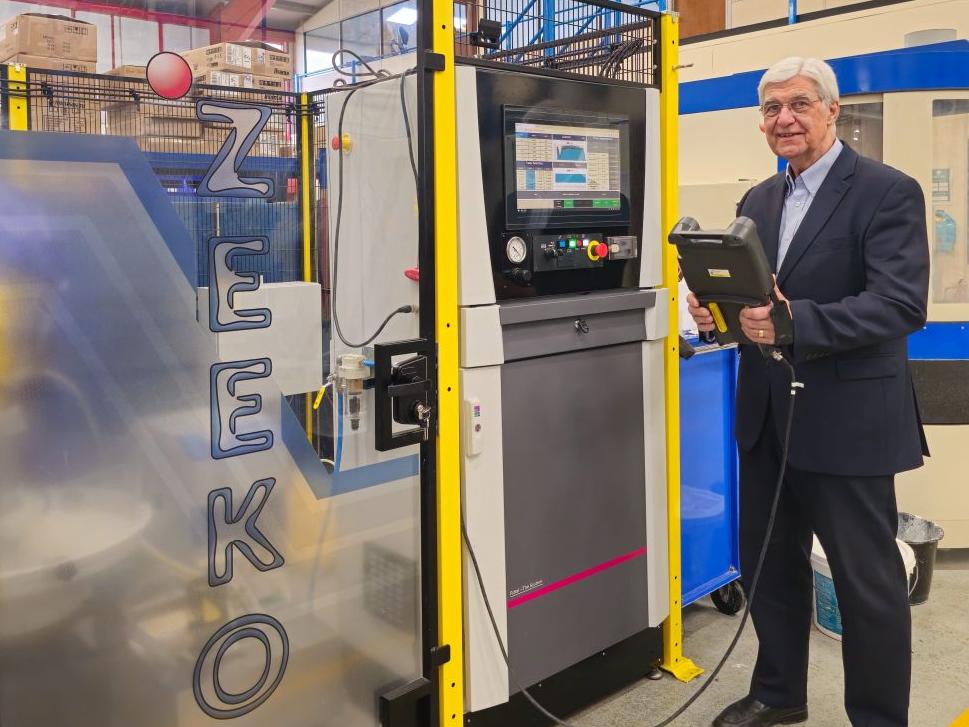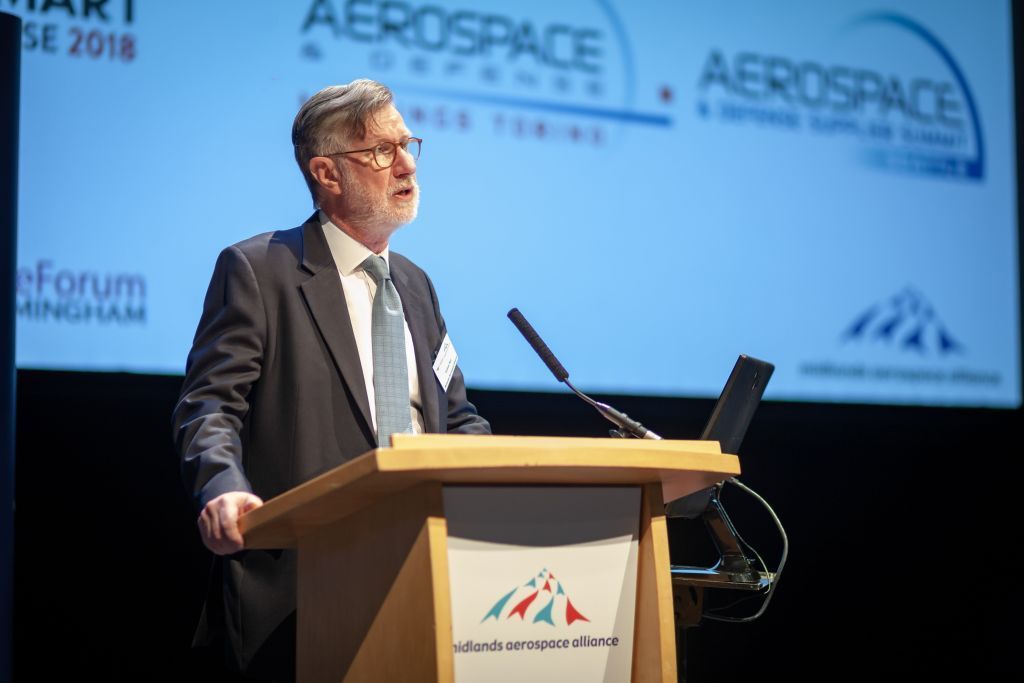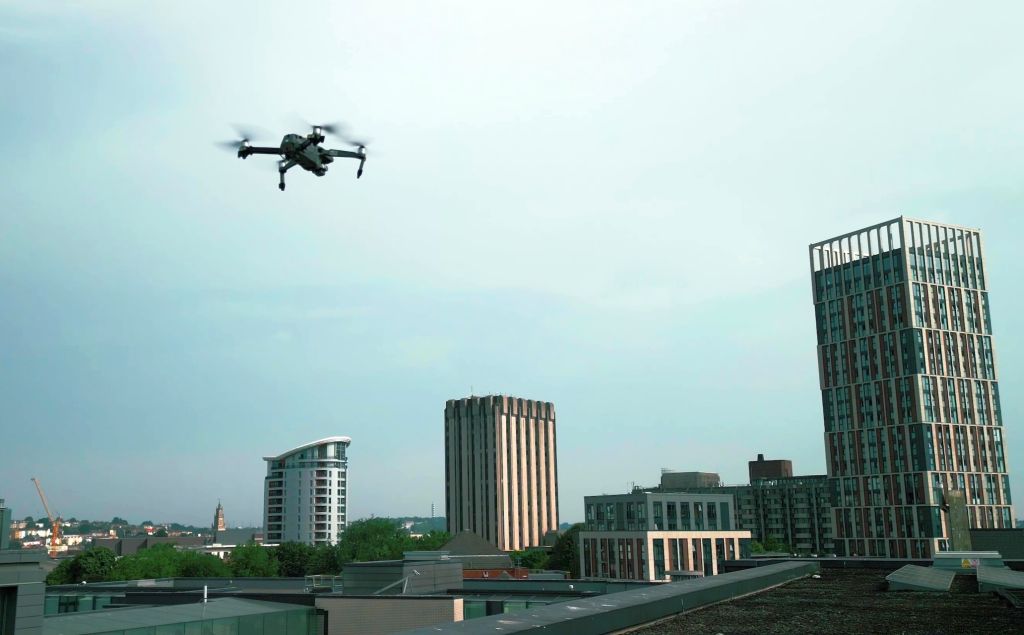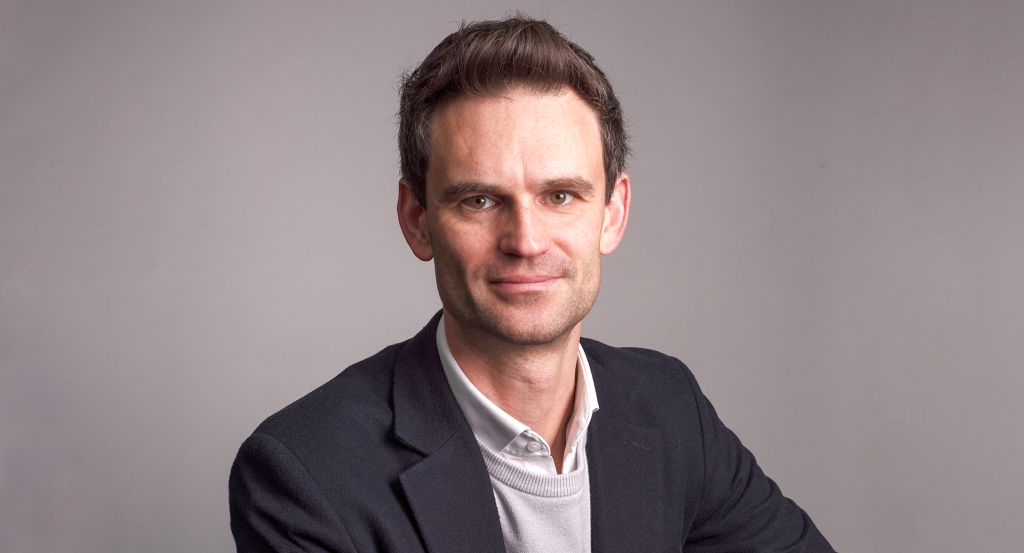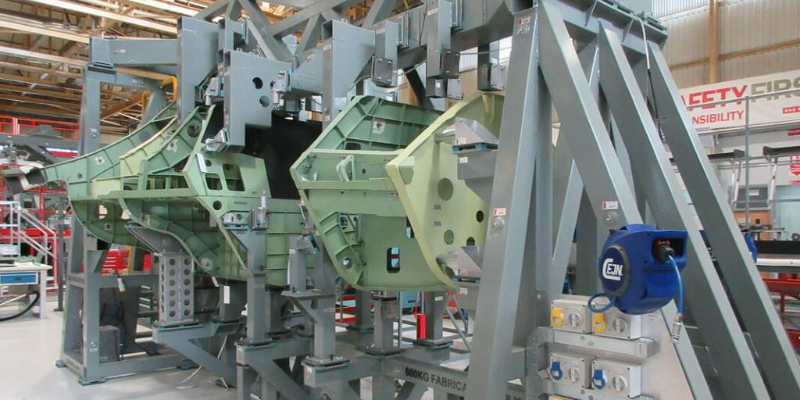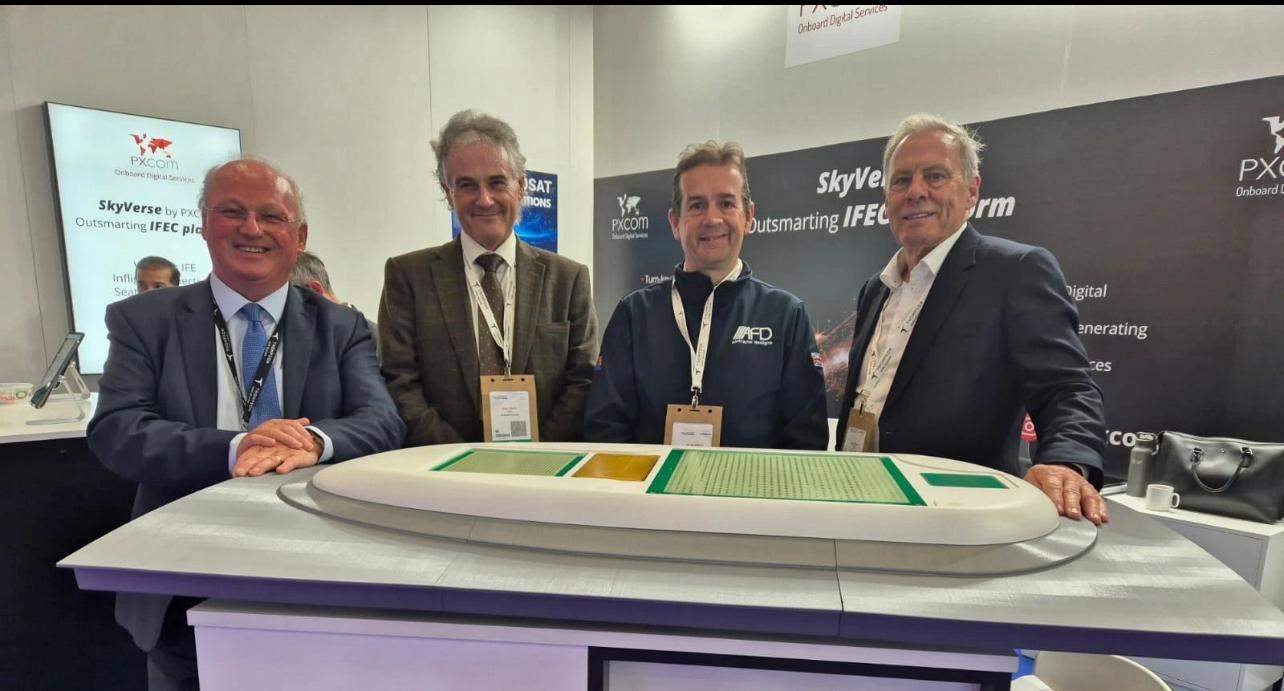
International Innovation Review: Making an impression in aircraft seating
6th Dec 2023 | In News | By Mike Richardson
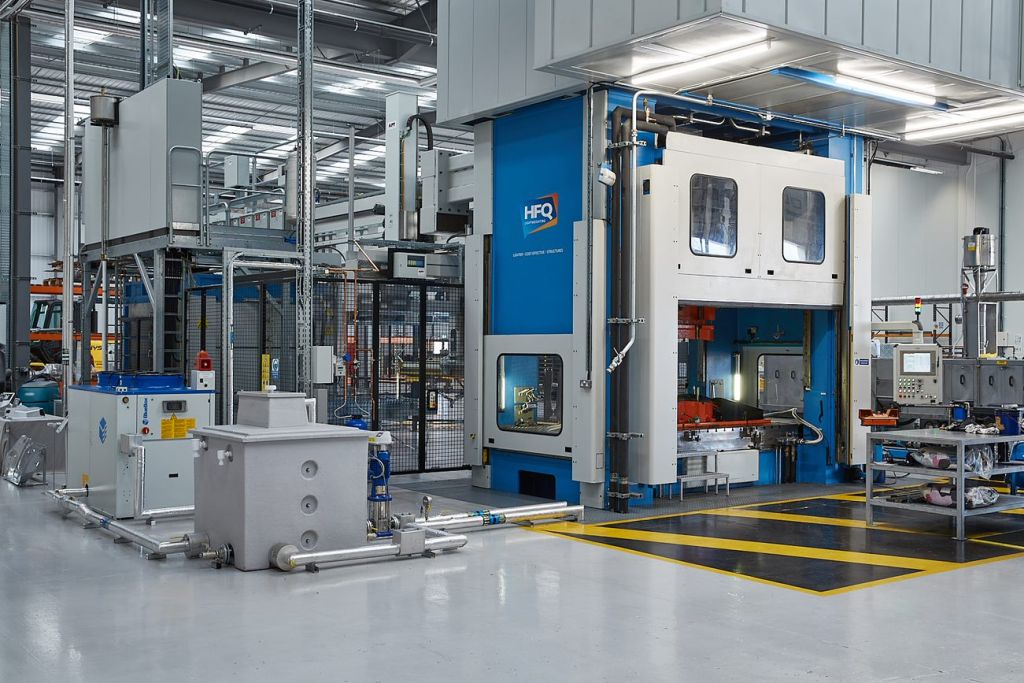
Midlands Aerospace Alliance’s technology manager, Peter Knight featured in our October issue to discuss how grants from its Aerospace UP and PIVOT programmes helped precision aluminium forming company, Impression Technologies transfer its Hot Form Quench (HFQ) technology from automotive into aerospace.
Every day, aerospace engineers are faced with the dual challenge of how to make lighter aircraft using materials which are more sustainable. However, transferring technologies into aerospace which are proven to meet this challenge in other market sectors such as automotive, is neither straightforward nor cheap.
This was discovered by Coventry-based Impression Technologies Limited (ITL), a provider of precision aluminium pressings to the automotive industry, when it tried to find interest in aerospace for its patented Hot Form Quench (HFQ) process. Two things quickly became obvious. The first was that ITL would need to design, make, and ultimately qualify some representative aircraft demonstration parts which exemplified the weight and cost advantages of HFQ.
The second was that the quality requirements for aerospace were a step up from those of automotive, and that tight process control needed to be not just achieved but evidenced at each step in order to ensure full traceability. Fortunately, the Midlands Aerospace Alliance was able to step up to the plate with two timely grant funding programmes, Aerospace UP and PIVOT, which have combined to help Impression Technologies bring the HFQ process to the attention of aerospace primes.
The PIVOT project
The HFQ process, which was commercialised in 2012 as a spin-off from research by Imperial College London, is a visco-plastic forming process whereby aluminium alloy sheet is heated to its solution heat treatment temperature, rapidly formed by pressing in a die, and then quenched rapidly prior to release from the die. The formed part is subjected to further heat treatment in a carefully controlled ageing process which ensures that the material reaches its full strength. The process delivers complex-geometry, high-strength lightweight pressings with tight bend radii, which don’t suffer the problems of ‘spring-back’ (elastic recovery) associated with conventional cold forming processes. HFQ offers fast, deep drawn, high dimensional stability parts with superior mechanical properties, and a reduced manufacturing cost.
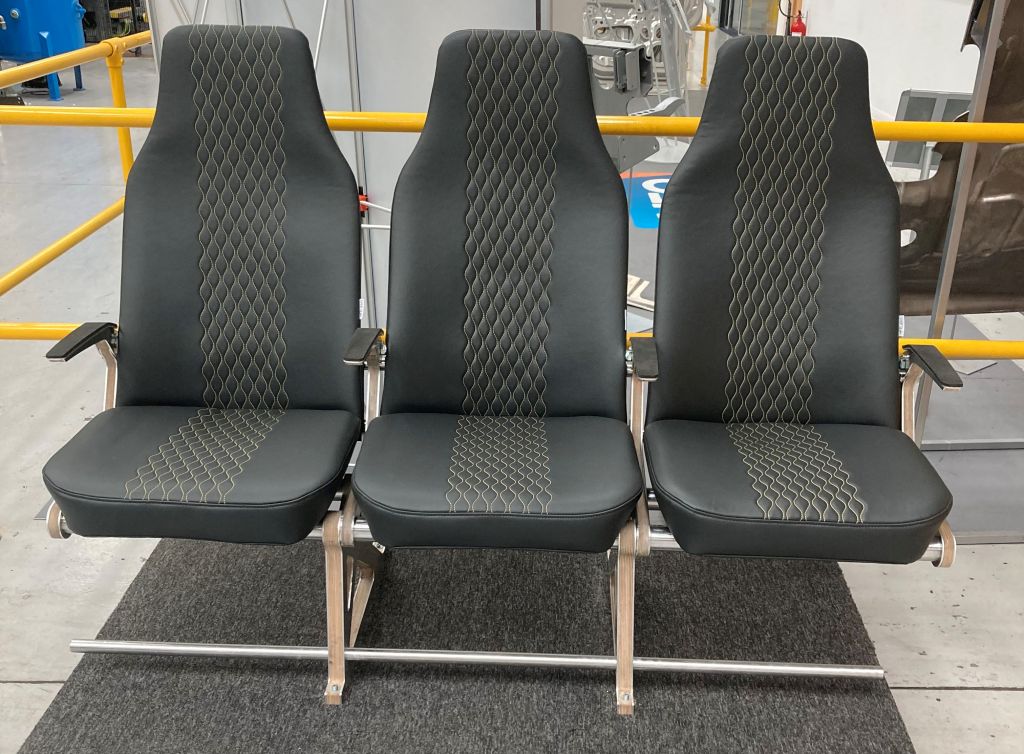
Although ITL had previously manufactured some prototype aerospace parts including a lightweight seat armrest that had received industry interest, it needed a larger, more exciting part which would offer significant potential weight savings to turn that interest into something more tangible. In June 2021, ITL submitted an Expression of Interest to the PIVOT team working at Midlands Aerospace Alliance, in which it would work with award-winning seat designer, Gary Doy of Doy Designs, to develop and manufacture a game-changing seat back. The new seat back, formed using HFQ, would compete with both other metallic solutions and composite fabrication.
The PIVOT programme was a pilot, part of the West Midlands Combined Authority’s new Innovation Programme aimed at giving opportunities, funding and expert support to companies across all regional supply chains which may be in a position to help address critical aerospace and aviation challenges. With the emphasis on technology transfer between market sectors, the ITL project to transfer an established automotive manufacturing process into aerospace was an excellent fit, and an R&D grant quickly followed. The aim of the project was to deliver real parts that technology adopters such as OEMs and Tier Ones could touch, which would effectively communicate the new design freedom offered by HFQ over incumbent manufacturing technologies. These parts would be a physical demonstration of both weight and manufacturing cost reduction.
The outcome of the PIVOT project was a new monocoque seat back design in 6xxx series aluminium alloy which was built into a bank of seats demonstrated at the Aircraft Interiors Expo, Hamburg in June 2023. The ITL seat back pressing weighed in at only 1.3kg and was both cost and time competitive against industry standards. ITL took the technology one step further by manufacturing seat backs from 100% recycled aluminium, produced by one of ITL’s network partners Gränges, without any detrimental effect on material properties, thereby also offering the industry a greener solution. There is considerable interest in the new seatback from Primes and Tier Ones recognising the opportunity to make significant inroads into total aircraft weight which HFQ can bring.
ITL hopes that this will lead to new licensing opportunities for HFQ into aerospace tiers and production opportunities for those tiers. The demonstrator will also have relevance to other aero parts that require high levels of form including other seat parts, wing ribs and engine inlet lip skins.
Ed Cooper, product manager at ITL comments: “For those grappling with procurement challenges for aluminium alloy pressings unmet by traditional manufacturing methods, ITL offers HFQ technology as a transformative solution.”
The Aerospace UP project
ITL identified that the transference of HFQ technology from automotive to aerospace would have an impact on quality assurance requirements. In particular, it would be necessary to log the thermal history of the aluminium sheet as it passes through the stages of the HFQ process from blank to formed part, and then to aged part. Also, for aerospace parts, an accurate knowledge of the temperature profile across the entire surface of the blank is essential, in order to guarantee material integrity.
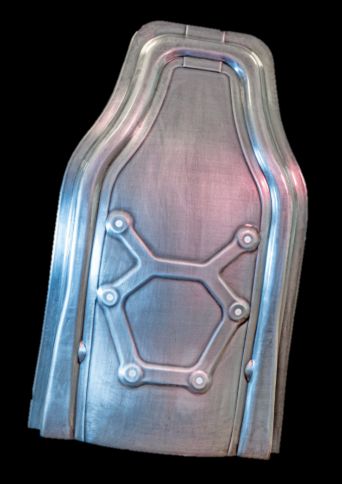
During a previous Innovate UK backed project which ended in 2019, ITL developed novel, patent-pending pyrometry technology to accurately measure the aluminium blank temperatures during transfer from the oven to the press. Existing pyrometers, even advanced solutions, are not accurate at measuring highly reflective aluminium in varying production environments where sheets often have different thicknesses of oxide layer, small composition changes that will affect emissivity or an extremely reflective layer such as alclad. The new pyrometer approach, which incorporates a number of different measurement techniques, was shown to work well but was still in the laboratory experiment stage, and unsuitable for a production environment.
By good fortune, the requirement to develop the pyrometer into a rugged shopfloor instrument coincided nicely with the Aerospace Unlocking Potential (Aerospace UP) programme. This was a £20 million, ERDF-supported R&D initiative (2020 to 2023) which was delivered jointly by the University of Nottingham and the Midlands Aerospace Alliance, helping the aerospace supply chain in the Midlands to unlock its innovation potential. Under this project ITL were able to redesign the pyrometer, electronics and software to fit into a new, more compact casing which could be demonstrated on the production line. The Aerospace UP grant also enabled ITL to upgrade the process data capture and part identification system in line with aerospace requirements.
“The new pyrometer is integral to the ‘data thread’ which now runs throughout the HFQ process, making it aerospace-ready as we move forward on the seating and other aerospace projects,” concludes project lead for this work, Tiago Teixeira.
Consider a free digital subscription
If you find this article informative, consider subscribing digitally to Aerospace Manufacturing for free. Keep up to date with the latest industry news in your inbox as well as being the first to receive our magazine in digital form.


